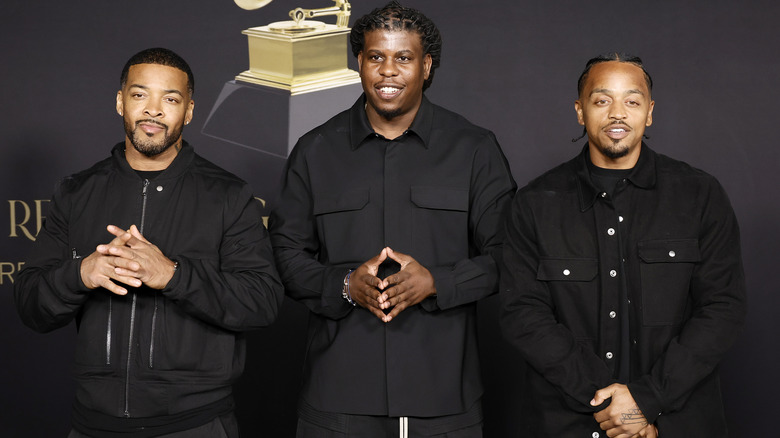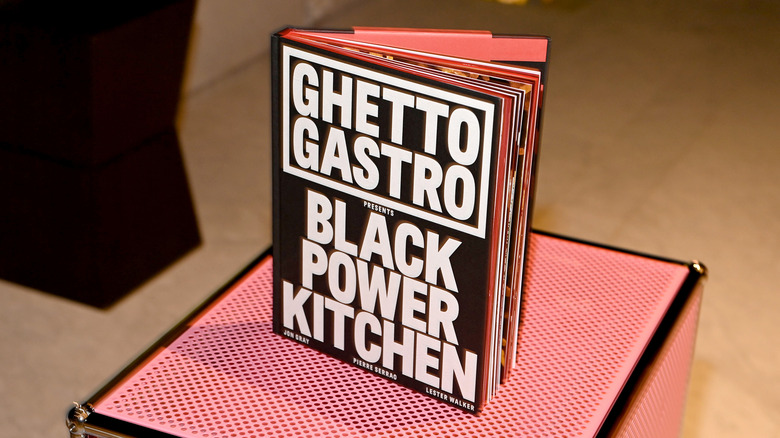Bronx-Based Ghetto Gastro Collective Showcases Black History Through Food
"It's always about the bigger picture in our eyes. We want to do our part to make sure everybody eats," Pierre Serrao, one of the three founders of the Ghetto Gastro food collective, says in an interview with Cultured Mag. Hailing from the Bronx, a New York City borough that is home to the highest level of food insecurity in the U.S., the trio — Serrao along with Jon Gray and Lester Walker — takes the saying "everybody eats" literally through a platform that nourishes the mind, bodies, and souls of Black communities in the Bronx and beyond. In their words, food is love. But it's also a tool — one that tells the story of the culture it comes from and, in turn, inspires larger conversations around race and access.
Informally known as the "Black Power kitchen of tomorrow," Ghetto Gastro is the culmination of the co-founders' efforts in putting their words into action over the past 10 years. With food as their weapon and their roots as their guiding compass, the collective functions not only at a local level — whether it be partnering with Bronx restaurants to feed Black Lives Matter protesters or donating to local community organizations — but also globally. Through collaborations with brands like Nike, Timberland, Beats by Dre, Fly By Jing, and more recently, the Japanese fashion label Sacai (per Instagram), Ghetto Gastro intersects Black cuisine — and therefore Black culture — with fashion, art, music, design, and activism worldwide.
Black Power Kitchen
In what is argued to be the collective's most defined and accessible piece of work yet, Ghetto Gastro's new book "Black Power Kitchen" has comprised its decade-long mission into 304 pages. Together, the founders worked with James Beard Award-winning writer Osayi Endolyn to share the ancestral ingredients and cooking traditions of the Black community — but calling it a cookbook would hardly suffice. "Black Power Kitchen" includes recipes, yes, but it also fuses them with essays, documentary photography, poetry, and art that are significant to the Black experience, perfectly summarizing the collective's mission of using food as a tool for telling their stories.
Recipes include what they call "Maroon Shrooms," a plant-based nod to traditional Jamaican jerk using grilled mushrooms. Only, learning how to cook isn't the only piece of knowledge — or power — that the collective passes on to its readers. Alongside the food photography and cooking directions within "Black Power Kitchen" are also excerpts from the author detailing the historical significance and inspiration behind each recipe. The Maroon Shrooms, for instance, was inspired by the original freedom fighters: the Jamaican Maroons, a group of Africans who actively maintained their freedom amongst Spanish and English possession of the island. This is just one of the many stories that Ghetto Gastro tells through the food it shares.
For more, order "Black Power Kitchen" on Amazon or the Ghetto Gastro website.

